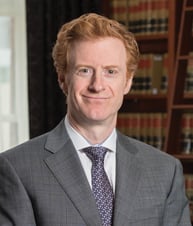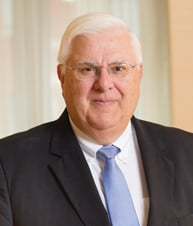Commerce Secretary Wilbur Ross informed a congressional trade committee that in mid-March the Administration will formally notify Congress of its intent to renegotiate NAFTA. This provides a timeframe for industry to assess how quickly policy priorities must be identified and trade-related lobbying efforts must get underway. The renegotiation has some support among congressional Democrats, but continued delays to the Senate confirmation of USTR nominee Robert Lighthizer could frustrate the Trump team’s planning on NAFTA.
Background on a NAFTA Timeline
U.S. law provides specific requirements for the negotiation of a trade agreement (see here). Under the Trade Promotion Authority (TPA), written notification to Congress will trigger a 90-day consultation period for congressional review before negotiations start. TPA determines that the notice shall include “specific U.S. objectives for the negotiations” and that 30 days before negotiations begin, the Administration has to make public a detailed and comprehensive summary of specific objectives. Assuming a March 15 notification, renegotiation of NAFTA could not formally be initiated under TPA until mid-June. This is an ambitious plan since many senior political appointees are not yet in place.
USTR or Commerce or…?
The timeline coupled with the absence of a Senate-confirmed USTR draws attention to a degree of confusion over leadership on trade in the Administration. Although the President’s trade policy agenda cited existing law that the USTR has the primary responsibility for developing U.S. international trade policy and acting as the principal spokesman of the President on international trade, the agenda did not reiterate that USTR is also legally mandated as the lead trade negotiating arm of the U.S. government. The rise of non-USTR voices on trade in the Trump White House, including Peter Navarro, director of the new White House National Trade Council; Jared Kushner, whose portfolio includes providing advice on trade negotiations; and former Trump Organization lawyer Jason Greenblatt, who is nominally the President’s Special Representative on International Negotiations, calls into question whether USTR will exercise its statutory authority going forward.
Trade Policy Agenda and NAFTA
The new trade policy agenda highlighted the need of a policy that “defends American sovereignty, enforces U.S. trade laws, uses American leverage to open markets abroad, and negotiates new trade agreements that are fairer and more effective both for the United States and for the world trading system.”
Regarding NAFTA, the agenda projects that the Administration will use this leverage to address trade deficits in goods with Canada and Mexico. Peter Navarro has oriented the entirety of U.S. trade policy around attacking bilateral deficits, proposing in a March 6 speech that trade agreements should be renegotiated if the U.S. begins to run trade deficits with a partner country. However, this idea sparked opposition from lawmakers who claim there are still surpluses with some countries and specific sectors in the existing trade deals. A sharp focus on the goods trade deficits threatens to detract from an agenda for NAFTA renegotiation that could actually modernize and improve the 20-year-old agreement in ways North American industry has already identified as necessary: from accommodating more appropriately for highly evolved supply chains to recognizing the ongoing liberalization of regional energy markets to providing meaningful opportunities for highly competitive U.S. services and financial services exporters.
What Should You Watch For?
- Expanded monitoring efforts beyond USTR, including Department of Commerce and White House National Trade Council announcements and public appearances.
- Congress 1: Monitor the USTR nomination and NAFTA activism by individual members of the trade committees in the House and Senate.
- Congress 2: Be sensitive to bipartisan support for NAFTA renegotiation along protectionist lines and address congressional outreach accordingly when seeking champions of regional free trade. The impact of changes on jobs will resonate with members from all 50 states.
- Industries should analyze their vulnerability to changes in trade rules that impact integrated supply chains in North America and develop communications strategies and plans to mobilize business partners, consumers and national legislatures in all three NAFTA countries.
- Industries that are already integrated throughout North America should adopt an integrated, coordinated approach to lobbying the three NAFTA governments.
*The Night Note has a long tradition in Washington, where for years it has been a channel used by cabinet secretaries to alert the White House of critical issues and vital news that should be among the President’s priority concerns. We’ve adapted it here to communicate timely issues that concern the trade and investment community stemming from new policy actions and decisions taken by the Trump Administration.

